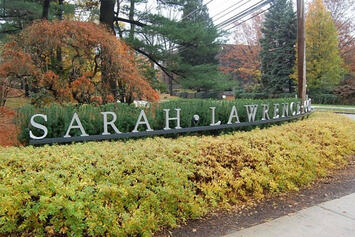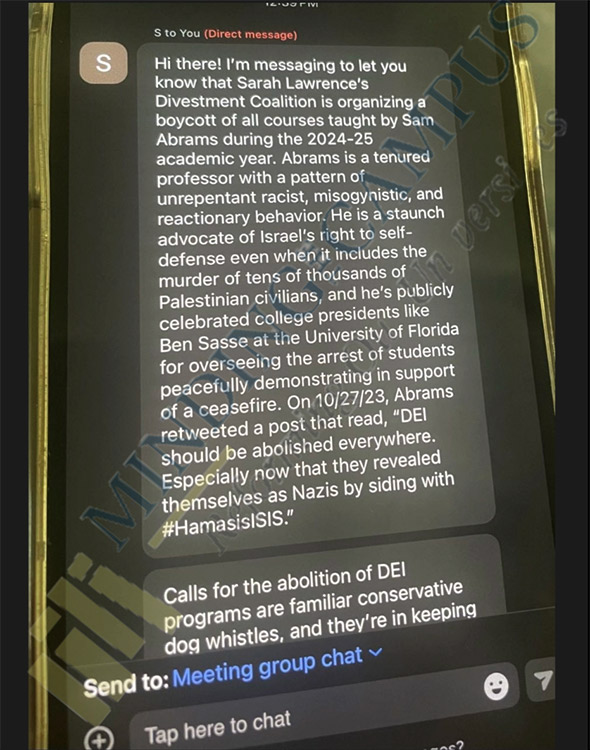
Academic boycotts targeting ideas, individuals, and institutions deemed problematic are no longer just in vogue for faculty. This illiberal and anti-intellectual tactic has now been adopted by students—presumably taking a cue from faculty and administrators—to cancel faculty who hold views they disagree with.
I encountered this personally during the most recent course interview week at Sarah Lawrence College, during which I learned that several groups—like the Sarah Lawrence Socialist Coalition and the Sarah Lawrence Review—decided that because I support Israel’s right to exist and to defend itself, my lectures will be corrupted and therefore should be boycotted.
During interview week, professors hold Zoom sessions to discuss their course plans and engage with prospective students—a course-shopping practice that started during the pandemic. This year, several leftist students, intent on canceling me and boycotting my courses—I’m teaching classes on Polarization and Presidential Leadership—resorted to privately messaging many of the prospective students in my Zoom room. These factually inaccurate and deliberately provocative messages went unnoticed by me during the session, as I was focused on sharing syllabi and other course-related information. It wasn’t until after the session that one of the students who received a message showed it to me, and I became aware of the situation. The next day, my classes, which are typically oversubscribed with waitlists, were not full—a stark contrast, especially during an election year. The message—posted below—which falsely stated that I tweeted a comment conflating “diversity, equity, and inclusion” (DEI) advocates with Nazis, read:

Screenshot of the message obtained by Minding the Campus
Cancel culture, as we know it, mostly occurs through social media, which anyone with an internet connection can view. While that’s bad enough, this tactic of directly messaging students is a chilling evolution of cancel culture that threatens speech, expression, learning, and open inquiry.
The culture of vocal, organized, and illiberal forces is now driving students away from courses these groups find objectionable. Unlike larger, more diffuse schools like Pace University or New York University, smaller residential schools like Sarah Lawrence College—where everyone knows everyone and reputations are critical—face amplified risks. When students are directly messaged about a boycott, it clearly signals that enrolling in my class could be risky. Such a culture is the antithesis of a true collegiate education. It is nearly impossible to stand against a mob that has declared someone persona non grata. While protesting a professor in the public sphere is one thing, directly targeting and approaching students through multiple channels raises the stakes, significantly increasing the intimidation for those who refuse to fall in line.
Read the rest of this piece at Minding the Campus.
Samuel J. Abrams is a profesor of politics at Sarah Lawrence College and a nonresident senior fellow at the American Enterprise Institute.
Photo: Library of Congress, Chi Psi Fraternity house, Cornell University, Public Domain
Photos: courtesy Minding the Campus.












